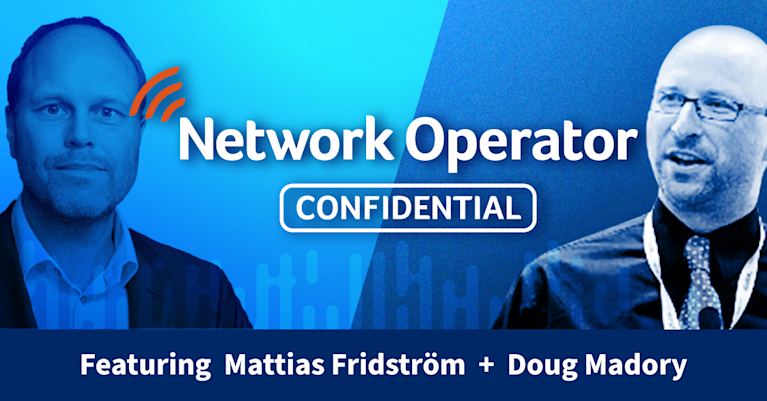What Does It Mean To Build a Successful Networking Team?


Summary
What does it mean to build a successful networking team? Is it hiring a team of CCIEs? Is it making sure candidates know public cloud inside and out? Or maybe it’s making sure candidates have only the most sophisticated project experience on their resume. In this post, we’ll discuss what a successful networking team looks like and what characteristics we should look for in candidates.
What does it mean to build a successful networking team? Is it all about gathering the most highly certified engineers you can afford? Is it about getting a group of specialists, each with their own subject matter expertise? Or is it all about finding those people with years and years of experience working in the trenches?
I’ve been thinking about this as I’ve been talking to some engineer friends of mine. And based on my own experience and the experience of my packet-slinging comrades, though technology changes faster as I get older, the underlying ideas of building a successful networking team really haven’t changed. And for me, we can boil it down to these few areas.
Harnessing an engineering mindset
Having an engineering mindset is one of the foremost things each member of a successful networking team needs to have. I learned this over the years as a network engineer working in daily network operations and as a VAR engineer working on my customers’ networks.
In a recent Telemetry Now podcast, my guest Tony Efantis echoed the same thing when he spoke about a candidate for a position on his team needing to show genuine curiosity and willingness to tackle new technical projects.
An engineering mindset is all about the ability to look at a technical problem and literally find a solution rather than give up or never even start in the first place. It’s a willingness to keep pushing until you find the answer, treating a technical problem like a puzzle.
For a network engineer, that means thinking logically about a problem, sometimes suspending best practices, drawing on the fundamentals, researching the issue online, diving in without fear of the unknown, and trying ideas until it works.
In that sense, to build a successful networking team, find people willing to jump into a technical project and do whatever they must to figure out the solution. They don’t need to be subject matter experts in every technology already, and they certainly don’t need to have all the answers.
An understanding of how technologies work together
In addition to a willingness to jump in, an engineer needs a broad understanding of how different technologies work together. Any decent network engineer should know the fundamentals of how frames and packets move across the wire (or air). But a successful networking team will have network engineers who also have a high-level understanding of how network activity relates to server activity, public cloud resources, security functions, containers, and so on.
No, I don’t believe a successful network team needs to be made of subject matter experts in all of those technologies, and I don’t think a successful network team should be responsible for all of them, either. But I do think that a broad understanding of how all of these services and components work together over the network provides a team with a fundamental understanding of how the networking piece should function.
Willingness to learn
If the networking team members aren’t willing to learn new things, they will fail. It’s as simple as that. Technology changes quickly, and though the fundamentals may stay mostly the same, there is a lot to learn if a team is going to maintain a performant, reliable, and competitive network infrastructure.
Building a successful networking team means prioritizing ongoing training and professional development. It means supporting those initiatives with money, time, and lab resources. Building that kind of team also means finding engineers eager to develop their skills and learn the latest relevant technology.
Cool under pressure
I’ve been through enough network cutovers and sweated through enough P1 troubleshooting sessions to know that the most successful networking teams and network engineers keep cool under pressure.
Networking is different from other areas of technology. If the network blips, even for a second, everyone knows it. Sometimes even a minor issue on a seemingly non-critical network device can significantly impact the rest of the network and, therefore, application delivery. For me, at least, working on a production network can be stressful and sometimes outright scary.
“Having network-wide data available when you need it alleviates a lot of pressure on the team.”
– Michael Morrison, Network EngineerThis means when things go south, which they inevitably do, it’s critical to keep a cool head, stay focused, and lean on the foundational knowledge that forms the basis of most of what network engineering is all about. Building a successful networking team means finding those engineers who, instead of freaking out during an outage, carefully look at the scenario and methodically work through the problem, even in the face of screaming CIOs and angry customers.
Being a team player
This last one goes without saying. Building a successful networking team means finding engineers who are team players. There is no such thing as an engineer who knows everything, so a successful team will be built from engineers with the humility to know they don’t know everything and the humility to lean on others when necessary.
That goes both ways, too. A team player on a successful networking team is willing to jump in when needed, even if it means doing lower-level tasks for the sake of the team’s success.
A tall order
Finding a group of engineers that meets all these criteria is a pretty tall order, isn’t it? The thing is, it’s not about finding that one perfect candidate, that one shiny unicorn. It’s about building a team where these characteristics are the norm and in which they can even flourish.
If you think about it that way, building a successful networking team is less about finding the best engineers with the most desirable attributes and more about finding decent people that can grow into that kind of team.
My experience has been all over the place. I’ve worked with amazing people willing to jump in at a moment’s notice, day or night. I’ve worked with arrogant jerks who wouldn’t help carry new gear into the building because they were the senior engineer on the project.
But looking over the landscape of my career, the very best teams I worked on had individuals that excelled in one or more of these attributes. They were teams that succeeded as engineers and thrived as people.


